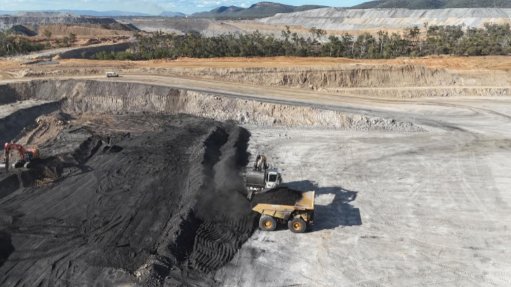PCC, WWF welcome signing into law of Climate Change Bill
The Presidential Climate Commission (PCC) and the World Wide Fund for Nature (WWF) have welcomed the signing into law of the Climate Change Bill.
The Presidency has announced that President Cyril Ramaphosa has signed into law the Climate Change Bill, which sets out a national climate change response, including mitigation and adaptation actions, and also constitutes South Africa’s fair contribution to the global climate change response.
The Climate Change Act, as endorsed by the President, enables the alignment of policies that influence South Africa’s climate change response, to ensure South Africa’s transition to a low-carbon and climate-resilient economy and society is not constrained by policy contradictions, the Presidency notes in a statement.
The law also sets out to enhance South Africa’s ability and capacity over time to reduce greenhouse-gas (GHG) emissions and build climate resilience, while reducing the risk of job losses and promoting opportunities for new job opportunities in the emerging green economy.
The Act has the aim of strengthening coordination between national sector departments and providing policy and decision-making to enable South Africa to meet the commitments in its nationally determined contribution (NDC) under the Paris Agreement.
The NDC is a set of commitments South Africa has made under the international Paris Agreement to reduce GHG emissions as part of climate change mitigation.
South Africa is one of more than 190 members of the United Nations Framework Convention on Climate Change who are party to the eight-year-old Paris Agreement.
South Africa’s mitigation measures are a response to climate change impacts that are increasingly experienced across a number of sectors including water resources; agriculture and food production; forestry and fisheries; human health; energy generation; industry; human settlements and migration; disaster management; biodiversity; and terrestrial ecosystems.
These impacts will disproportionately affect poor communities and vulnerable groups and could affect South Africa’s ability to meet its development and economic growth goals, including job creation and poverty reduction, the Presidency warns.
The Climate Change Act sets out the functions of the PCC, which includes providing advice on South Africa’s climate change response to ensure the realisation of the vision for effective climate change response and the long-term just transition.
The law also stipulates the role provinces and municipalities will play in mitigation efforts.
The PCC has welcomed the signing of the Bill into law, which it says is South Africa’s first comprehensive legislation to encourage the development of an effective climate change response.
“Undoubtedly, any successful climate action effort will require alignment of major socioeconomic, environmental and governance policies. We are entering a new phase of climate action and we believe the Climate Change Act, will foster institutional coherence and enhance climate change adaptation governance across the national, provincial and local layers of government.
“As we raise the curtain on the seventh administration of the Government of National Unity, we welcome this ground-breaking legalisation which not only clearly sets out the functions of the PCC but outlines the role of provinces and municipalities will play in mitigation efforts, to ensure the realisation of the vision for effective climate change response and just transition to a climate-resilient and low-carbon economy and society,” says PCC Commissioner and executive director Dr Crispian Olver.
Further, the WWF says this critical piece of legislation is the scaffolding upon which the nation’s approach to climate action will be built going forward.
By providing for the mainstreaming of climate targets across government line Ministries, it helps to embed the principles and aspirations of the nation’s commitments under the global Paris Agreement into national implementation.
“After nearly ten years of engagement, and seven years after the first draft Bill was published, it is heartening to see this Act finally passed. Over this same period, South Africa has emitted over four-billion tonnes of CO2, and the evidence of climate change impacts on people’s lives and livelihoods has become increasingly apparent. The importance of this framework law in guiding our response to this crisis cannot be overstated,” says WWF climate action senior manager James Reeler.
The organisation points out that regulations governing carbon budgets for high-emitting companies still need to be finalised and that sectoral emission targets that guide relevant line Ministries are still in process. However, the law does formalise the PCC as the key advisory body guiding government on mitigation and adaptation to climate change.
“The Act formalises the PCC as a Schedule 3 entity, with a strong role as advisory to government. All signals are that the effective cordial and independent relations we've built with the Presidency, key Ministries and government as a whole will persist. With commissioners from all social partners, the commission provides a means of surfacing, discussing and coalescing views from all quarters, founded on a solid evidence base,” says PCC Commissioner and WWF senior climate change engagement specialist Louise Naudé.
The Climate Change Act also requires national, provincial and municipal governments to consider the implications of climate change on their operations and plan accordingly.
Provincial and municipal forums on climate change will both raise awareness and ensure that people throughout the country can make their voices heard on the issue. This approach will ensure that development is climate resilient. The linking of climate change adaptation to local-level planning has long been a gap, given that many of the impacts of a changing climate are highly evident in local vulnerabilities, the organisation notes.
Comments
Press Office
Announcements
What's On
Subscribe to improve your user experience...
Option 1 (equivalent of R125 a month):
Receive a weekly copy of Creamer Media's Engineering News & Mining Weekly magazine
(print copy for those in South Africa and e-magazine for those outside of South Africa)
Receive daily email newsletters
Access to full search results
Access archive of magazine back copies
Access to Projects in Progress
Access to ONE Research Report of your choice in PDF format
Option 2 (equivalent of R375 a month):
All benefits from Option 1
PLUS
Access to Creamer Media's Research Channel Africa for ALL Research Reports, in PDF format, on various industrial and mining sectors
including Electricity; Water; Energy Transition; Hydrogen; Roads, Rail and Ports; Coal; Gold; Platinum; Battery Metals; etc.
Already a subscriber?
Forgotten your password?
Receive weekly copy of Creamer Media's Engineering News & Mining Weekly magazine (print copy for those in South Africa and e-magazine for those outside of South Africa)
➕
Recieve daily email newsletters
➕
Access to full search results
➕
Access archive of magazine back copies
➕
Access to Projects in Progress
➕
Access to ONE Research Report of your choice in PDF format
RESEARCH CHANNEL AFRICA
R4500 (equivalent of R375 a month)
SUBSCRIBEAll benefits from Option 1
➕
Access to Creamer Media's Research Channel Africa for ALL Research Reports on various industrial and mining sectors, in PDF format, including on:
Electricity
➕
Water
➕
Energy Transition
➕
Hydrogen
➕
Roads, Rail and Ports
➕
Coal
➕
Gold
➕
Platinum
➕
Battery Metals
➕
etc.
Receive all benefits from Option 1 or Option 2 delivered to numerous people at your company
➕
Multiple User names and Passwords for simultaneous log-ins
➕
Intranet integration access to all in your organisation





















